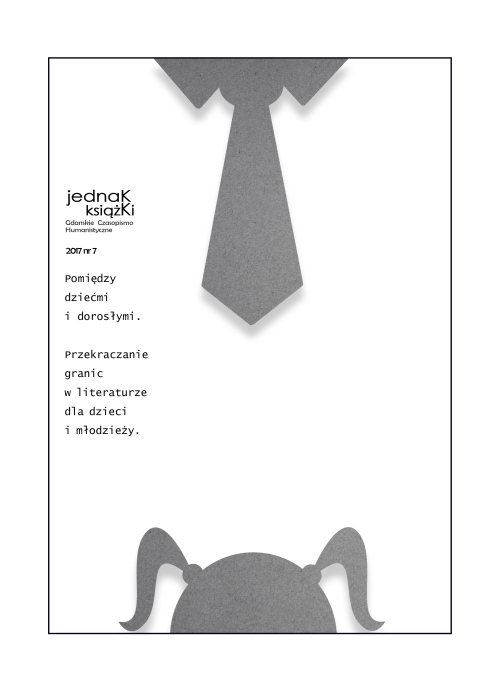Gender studies wobec problemów diachronii i synchronii
Słowa kluczowe:
gender studies, feminism, queer, science, theory, poststructuralism, twentieth centuryAbstrakt
This research paper aims to present the issue of gender studies as a scientific discipline embed in certain research context and in a network of relations with such ideas and conceptions as feminism and queer theory. By analyzing the historical and philosophical context and the range of influence in the area of these three disciplines, I consider the way how they popularly function in the scientific and common discourse. By relating both disciplines to each other and confronting them with the chronology, I analyze possible variants of thinking the sequent of these disciplines or their ahistorical functioning. I also search for the similarities between them, which could advocate a diachronic view and place in the causal context that calls to the synchronic attempt. In that way I consider all points of view and speculate validity or invalidity of synchronic attempt to gender studies, feminism and queer theory. Starting from asking for the historism or ahistorism of the term gender and presenting the way it varies from feminist and queer conceptions, I consecutively analyze feminism with reference to gender research (in both variants of the chronological result); gender research with reference to queer studies and queer studies with reference to feminism.
Downloads
Bibliografia
Chodorow Nancy. 1978. The Reproduction of Mothering: Psychoanalysis and the Sociology of Gender. Berkeley–London: University of California Press.
Czarnacka Agata. 2014. Etyka feministyczna, 121-122. W: Rudaś-Grodzka Monika, red. Encyklopedia gender. Płeć w kulturze. Warszawa: Czarna Owca.
Dinnerstein Dorothy. 1977. The Mermaid and the Minotaur: Sexual Arrangements and Human Malaise. New York: Harper & Row.
Grosz Elizabeth. 1994. Volatile Bodies. Toward a Corporeal Feminism. Bloomington: Indiana University Press.
Hyży Ewa. 2004. Feminizm (lesbijski) i teoria queer, czyli o damsko-męskich dylematach teorii i politycznej praktyki, 71-87. W: Radkiewicz Małgorzata, red. Gender – konteksty. Kraków: Rabid.
Kłosińska Krystyna. 2010. Krytyczki androtekstów: Kate Millet „Sexual Politics”. W: Feministyczna krytyka literacka, 25-60. Katowice: Wydawnictwo Uniwersytetu Śląskiego.
Lizurej Marzena. 2007. Między teorią queer a praktyką queer, czyli co to znaczy, że jesteśmy różni, 29-42. W: Baer Monika, Lizurej Marzena, red. Z odmiennej perspektywy. Studia queer w Polsce. Wrocław: Oficyna Wydawnicza Arboretum.
Łebkowska Anna. 2012. Gender, 367-408. W: Nycz Ryszard, Markowski Michał Paweł, red. Kulturowa teoria literatury. Główne pojęcia i problemy. Kraków: Universitas.
Meyer Moe. 2012. Dyskurs Kampu. Rewindykacja. Bartosz Agata, tłum., 525-550. W: Czapliński Przemysław, Mizerka Anna, red. Kamp. Antologia przekładów. Kraków: Universitas.
Namaste Ki. 1994. „The Politics of Inside/Out: Queer Theory, Poststructuralism, and a Sociological Approach to Sexuality”. Sociological Theory 12 (2): 220-231.
Rubin Gayle. 2004. „Rozmyślając o seksie: zapiski w sprawie radykalnej teorii polityki seksualności”. Mizielińska Joanna, tłum. Lewą nogą (16): 164-224.
Szczur Przemysław. 2010. „Homoseksualność, ale która? O sporze esencjalizm versus konstruktywizm w studiach gejowsko-lesbijskich”. Źródła Humanistyki Europejskiej 3: 191-206.
Świerkosz Monika. 2008. „Feminizm korporalny w badaniach literackich. Próba wyjścia poza metaforykę cielesności”. Teksty Drugie (1-2): 75-95.

 Uniwersyteckie Czasopisma Naukowe
Uniwersyteckie Czasopisma Naukowe




